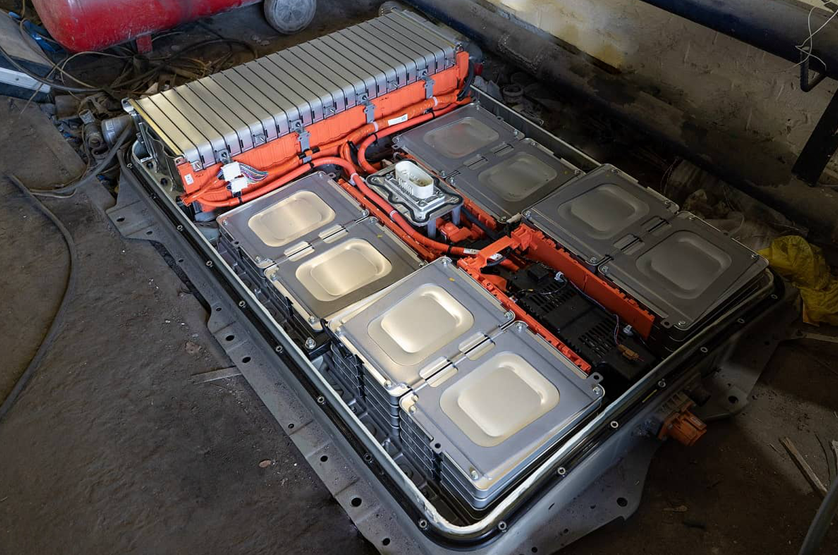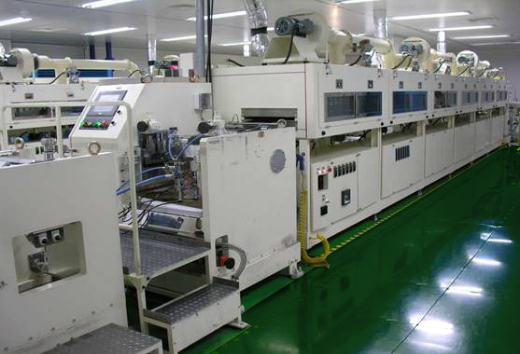Advancements in Military Equipment: The Power of Lithium Batteries
In recent years, military equipment has undergone significant advancements, transforming the way modern armies operate. One of the key contributors to this progress is the development and utilization of lithium batteries. These lightweight and high-energy storage devices have revolutionized the military landscape, providing soldiers with more efficient and reliable power sources for their equipment. This article will explore the various advancements and benefits associated with the use of lithium batteries in military applications.
First and foremost, the primary advantage of lithium batteries lies in their exceptional energy density. Compared to traditional lead-acid batteries, lithium batteries can store significantly more energy per unit weight. This increased energy capacity allows military personnel to operate their equipment for longer periods without the need for frequent recharging or battery replacements. Whether it is powering night-vision goggles, GPS devices, or communication systems, lithium batteries ensure that soldiers can rely on their equipment when it matters most.
Furthermore, lithium batteries exhibit excellent performance even in extreme weather conditions. Unlike their predecessors, which might struggle to function in freezing temperatures, lithium batteries can continue to deliver optimal performance in harsh environments. This resilience is crucial for military personnel who often find themselves in diverse and demanding terrains. Whether it is the freezing cold of the Arctic or the scorching heat of the desert, soldiers need equipment that can withstand the elements and perform reliably. Lithium batteries provide them with this capability.
Moreover, the lightweight nature of lithium batteries is a significant advantage for soldiers who must carry their equipment for extended periods. The reduced weight of lithium batteries allows for easier mobility, ensuring that soldiers can maneuver swiftly and effectively on the battlefield. With the addition of lithium batteries, military backpacks become significantly lighter, minimizing fatigue and enhancing overall operational efficiency. Whether it is on foot patrols or longer missions, the reduced weight attributed to lithium batteries undoubtedly plays a crucial role in modern military operations.
In addition to their energy density and lightweight properties, lithium batteries also offer an extended lifespan. Traditional batteries often deteriorate over time, requiring frequent replacements that can be costly and time-consuming. However, lithium batteries have a longer operational life, reducing the need for frequent replacements and maintenance. This durability is particularly valuable in remote military operations where access to reliable maintenance resources might be limited. Soldiers can focus on their missions without the added concern of battery failures, enhancing their effectiveness in the field.
Furthermore, the rapid advancements in lithium battery technology have opened up new possibilities for the integration of renewable energy sources into military applications. The ability to harness solar or wind energy and store it in lithium batteries allows for a more sustainable approach to power generation in the military. This development has significant implications, both in terms of reducing the environmental impact of military operations and ensuring a continuous power supply in remote areas where traditional energy sources are not readily available.

However, despite their numerous advantages, lithium batteries are not without challenges in military applications. Safety concerns, particularly with regards to their potential for overheating or catching fire, have been raised. The military has addressed these concerns through extensive testing and development of safety protocols. Additionally, the cost of lithium batteries remains relatively high compared to traditional battery technologies. However, as the demand for lithium batteries continues to grow in military applications, economies of scale and technological advancements are expected to drive down costs in the near future.
In conclusion, the advancements in military equipment driven by lithium batteries have transformed the capabilities of modern armies. The exceptional energy density, resilience in extreme weather conditions, reduced weight, extended lifespan, and potential for renewable energy integration make lithium batteries an indispensable asset for military operations. While safety concerns and cost are valid considerations, ongoing research and development in this field are expected to address these challenges. As technology continues to evolve, so too will the power and potential of lithium batteries in military applications.
-
 In today's modern world, the demand for high-capacity batteries has increased exponentially. As we rely more on portable devices and renewable energy sources, the need for long-lasting energy solutions has become crucial. One such solution is the high-capacity 12V LiFePO4 battery, which offers 100Ah power to meet our energy requirements efficiently. In this article, we will explore the...En savoir plus
In today's modern world, the demand for high-capacity batteries has increased exponentially. As we rely more on portable devices and renewable energy sources, the need for long-lasting energy solutions has become crucial. One such solution is the high-capacity 12V LiFePO4 battery, which offers 100Ah power to meet our energy requirements efficiently. In this article, we will explore the...En savoir plus -
 LiFePO4 batteries are a type of rechargeable battery that has gained popularity in recent years due to their many advantages over other battery chemistries. In this article, we will discuss the advantages and applications of LiFePO4 batteries. Advantages of LiFePO4 Batteries 1. High Energy Density LiFePO4 batteries have a high energy density, which means that they can...En savoir plus
LiFePO4 batteries are a type of rechargeable battery that has gained popularity in recent years due to their many advantages over other battery chemistries. In this article, we will discuss the advantages and applications of LiFePO4 batteries. Advantages of LiFePO4 Batteries 1. High Energy Density LiFePO4 batteries have a high energy density, which means that they can...En savoir plus -
 When it comes to boating, having a reliable source of power is essential. Whether you're out on the open water or enjoying a day at the lake, you need batteries that can keep your boat running smoothly. That's where marine batteries come in. These specialized batteries are designed to provide the power your boat needs while withstanding the unique challenges...En savoir plus
When it comes to boating, having a reliable source of power is essential. Whether you're out on the open water or enjoying a day at the lake, you need batteries that can keep your boat running smoothly. That's where marine batteries come in. These specialized batteries are designed to provide the power your boat needs while withstanding the unique challenges...En savoir plus -
 Are you tired of dealing with weak and unreliable starter batteries in your vehicle? Look no further than a lithium starter battery to provide the power and reliability you need to get your engine revving. Lithium starter batteries are a popular choice for many vehicle enthusiasts due to their lightweight and compact design, as well as their ability to...En savoir plus
Are you tired of dealing with weak and unreliable starter batteries in your vehicle? Look no further than a lithium starter battery to provide the power and reliability you need to get your engine revving. Lithium starter batteries are a popular choice for many vehicle enthusiasts due to their lightweight and compact design, as well as their ability to...En savoir plus -
 Lithium iron phosphate (LiFePO4) batteries are becoming increasingly popular in the energy storage industry due to their excellent safety record, long lifespan, and high energy density. As with any new technology, the cost of LiFePO4 batteries has been a major barrier to their widespread adoption. However, as production has increased and economies of scale have kicked in, prices have started...En savoir plus
Lithium iron phosphate (LiFePO4) batteries are becoming increasingly popular in the energy storage industry due to their excellent safety record, long lifespan, and high energy density. As with any new technology, the cost of LiFePO4 batteries has been a major barrier to their widespread adoption. However, as production has increased and economies of scale have kicked in, prices have started...En savoir plus -
 When it comes to powering your vehicle or equipment, having a reliable battery is crucial. Whether you need to start your engine, power your electronics, or run your appliances, the right battery can make all the difference. That why we excited to introduce our new Lithium 12V Starter Battery – a powerful and dependable solution for all your power needs....En savoir plus
When it comes to powering your vehicle or equipment, having a reliable battery is crucial. Whether you need to start your engine, power your electronics, or run your appliances, the right battery can make all the difference. That why we excited to introduce our new Lithium 12V Starter Battery – a powerful and dependable solution for all your power needs....En savoir plus -
 Technology has become an integral part of our lives. From smartphones to laptops, we rely heavily on these devices to stay connected and get our work done. One such device that often goes unnoticed but plays a crucial role in our daily tasks is the PC mouse. Whether you are a gamer, a graphic designer, or a student working on...En savoir plus
Technology has become an integral part of our lives. From smartphones to laptops, we rely heavily on these devices to stay connected and get our work done. One such device that often goes unnoticed but plays a crucial role in our daily tasks is the PC mouse. Whether you are a gamer, a graphic designer, or a student working on...En savoir plus

